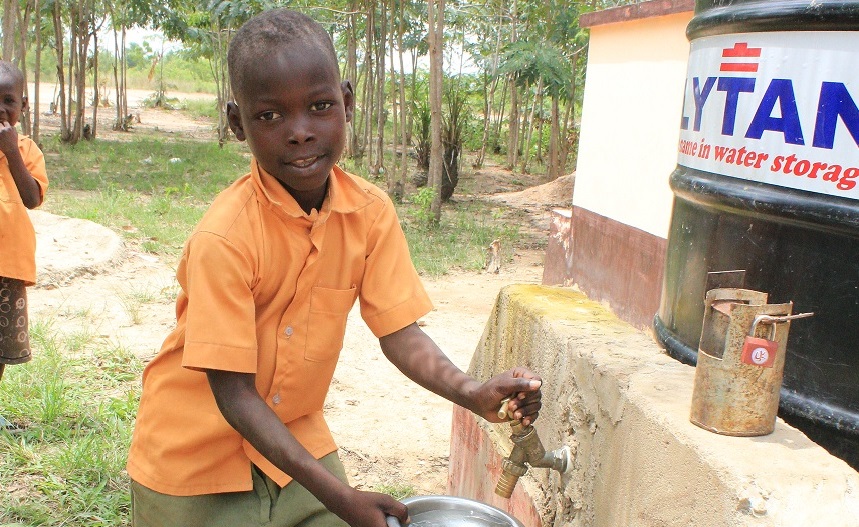Ghana adopted a universal health care system in 2003, resulting in more citizens accessing treatment and education. But for families in Volta, Ghana, many of their basic health needs are not always being met. Although urban areas are well serviced by the government-run public health system, access to these services is often limited or nonexistent in rural areas like Volta.

Global’s Seanna Collins visited Volta with Plan Canada to experience the impact of Community Sponsorship and was overwhelmed when she learned of the lack of healthcare resources in the community.
“Many people in Volta receive no medical attention when they need it, which makes them sicker and puts them at a much greater risk to more severe illness or even death,” she says.
Plan Canada has been working with families in Volta to construct a healthcare facility, one much-needed cornerstone to addressing the needs of the community.
Plan is also educating community members on the importance of key health issues, with emphasis on education about immunization, improved nutrition, insecticide-treated bed nets, anemia prevention, and sanitation. Infectious diseases such as malaria, typhoid and cholera as well as common childhood illnesses plus malnutrition are the most common causes of death in children, and malaria in particular accounts for one-third of all hospitalizations.
There is also a particular concern for expectant mothers, who face numerous health risks during and after pregnancy. Maternal care is scarce — approximately half of the women giving birth here are doing so without skilled care, contributing to a high infant mortality rate that is ten times that of Canada’s. Along with safe, supervised labour and delivery, postnatal education for breastfeeding, birth registration, and infant growth monitoring are keys to safer births and infant care.
For these families, lack of access to healthcare created difficulties in emergencies, childbirth and urgent cases where timely response is crucial. A dedicated health facility allows drop-in visits when patients are in need and provides privacy for patients to discuss sensitive personal issues, such as family planning. Seanna Collins witnessed the impact that improved access to healthcare can have on the families already benefiting from the new health facility.
“It was exciting to see the new healthcare building in the area I visited. Many of the small remote areas of Volta do not have any type of health facility so they must walk extremely long distances to get any kind of medical attention.”
Clean water and improved sanitation are also vital for good health. Plan Canada has been raising awareness about healthy habits such as hand washing, and providing facilities that we in Canada often take for granted — latrines. Constructing latrines improves health by ensuring that waste doesn’t enter the water supply and by building gender-separated latrines at schools that respect the privacy of students, more and more girls are motivated to continue their education.
Clean water is fundamental to good health, but polluted water from the Volta River was used for drinking, washing, and bathing. “I don’t think I’ll ever look at water the same way again,” says Global’s Seanna Collins. “The community used to be extremely sick. Children’s health was at risk due to the dirty and contaminated water.”
Without a safe source of water and adequate sanitation, illnesses such as diarrhea and typhoid are common, but for many families like those in Volta, there is no other choice. Since providing water access points and rainwater catchment for handwashing, there has been a notable drop in illness in the families impacted by Plan Canada’s Community Sponsorship. Plan and local volunteers worked together to build a system that can treat river water to make it safe and clean.
Change is happening in Volta, but there is still much more to be done and so many more families that we can reach with your support. You can be part of making it happen: Plan Canada is looking for 800 Edmonton families or individuals to sponsor the Volta community. A donation of $39/month helps the community develop the tools and skills break the cycle of poverty and become self-sufficient. You can find more information at www.plancanada.ca/edmonton-challenge .


